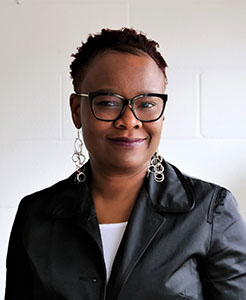The Race and Antiracism Network

Associate Professor
School of Communication
Abbotsford campus, D3109
Phone: 604-504-7441 ext. 4052
email RitaDr. Rita Atake joined UFV’s Communication Department in 2016 after 20 years of working with various post-secondary institutions in the United States. Rita’s work in the United States involved teaching and implementing various federal and State-funded education initiatives in workforce development. With background as a regional director and associate director for the center for teaching and learning in a postsecondary institution in Canada, Rita has a passion for supporting successful integration of international students into Canadian post-secondary institutions.
Rita was the Coordinator the Academic Success Center at UFV before joining the Communications department. Her passion for supporting international students motivated Rita’s doctoral research work focused on, e-learning, internationalization and adult education. Her current research work examines epistemological diversity and internationalization in the classroom.
When professors bring narratives of their experiences into classroom discussions it eliminates the- possibility that we function as all knowing, silent interrogators.
- bell hooks, Teaching to Transgress: Education as the Practice of Freedom, p. 21
I believe that education is a storied experience that empowers and equips learners and educators alike with capacity to achieve personal transformation and social change. My teaching philosophy is founded on two principles: 1) teachers as learner-facilitators, and 2) teaching as an inclusive practice.
Teachers as Learner-Facilitators
This principle speaks to my drive for ongoing development as it relates to the courses that I teach and my engagement with scholarship that informs my practice. It reflects my motivation to improve the technical skills and knowledge that enable me to teach in a variety of learning environments. As a learner-facilitator, I value dialogue and feedback that challenge pre-existing opinions. I consider the learning environment an invitation to connect with learners to consider together new ways of seeing old ideas.
Teaching as an Inclusive Practice
I believe that the education process must acknowledge learners are differently situated by their sociocultural positionalities. Teaching as an Afro-Canadian female and a visible minority requires courage, empathy, vulnerability, determination and a conscious effort to give voice to Indigenous and other ways of knowing. I aim to affirm and motivate students to excel where their difference may be positioned as a deficit. I believe teaching as an inclusive practice flattens the privilege inherent within student-teacher relationships. It encourages collaborative and deep learning within communities of diverse learners.